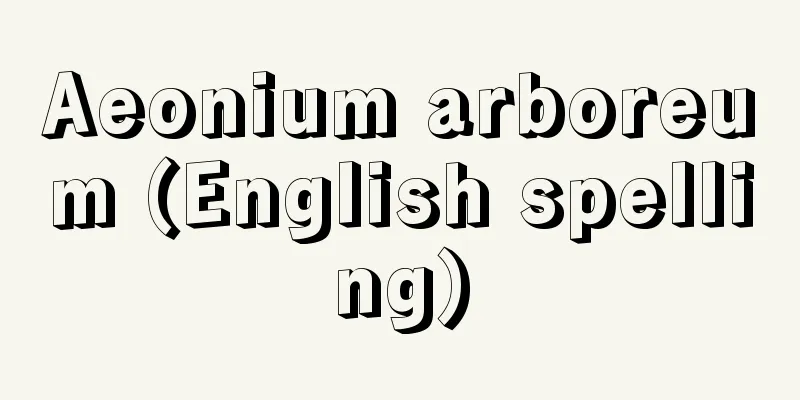Educational civil servant - Kyoiku Koumuin

|
The concept of educational public servants is defined in the Special Act on Educational Public Servants (Act No. 1 of 1949) as meaning presidents, principals (including kindergarten principals), teachers (professors, associate professors, vice principals, teachers, assistant teachers, school nurses, school nurse assistant teachers, full-time lecturers) and department heads (vice presidents, deans of universities, and other heads of departments designated by government ordinance) of national and public schools, superintendents of education, and specialized educational staff (supervisory directors, social education directors) (Article 2). Educational public servants have the status of national public servants when working for national schools and other institutions, and local public servants when working for local government institutions such as public schools, and there is no special status for educational public servants apart from these. Therefore, they are subject to the National Public Servant Act and the Local Public Servant Act, respectively, but based on the special nature of the duties and responsibilities of educational public servants, special provisions are stipulated in the Special Act on Educational Public Servants with regard to their appointment and dismissal, discipline, service, and training. The important exceptions are the following: (1) The appointment of university presidents, department heads, and faculty members, and the appointment of principals and faculty members of schools other than universities (including promotion of faculty members) will be based on a selection system rather than on competitive examinations. (2) More active training incentives are in place for civil servants than for general civil servants (civil servants other than education officials) (such as long-term training while remaining in their current positions). (3) Regarding restrictions on political activity, public school teachers are required to follow the example of national school teachers, and active political activity is prohibited even outside the district of the local government in which they work. (4)Regarding concurrent employment, the regulations are somewhat looser than for general public servants, and they may hold other positions related to education or engage in other education-related business affairs, with or without receiving a salary, to the extent that the appointing authority deems it will not interfere with their main duties. Note that, rather than the Special Act on Educational Public Servants, the Industrial Technology Enhancement Act was enacted in 2000 (Heisei 12), which allows for special measures to allow national university instructors to concurrently serve as company executives, from the perspective of promoting so-called industry-academia collaboration. (5) The type and amount of salary of public school educational public servants shall be determined based on that of national school educational public servants. In addition, like general public servants, they are legally bound by the obligation to take an oath of office, to maintain official secrets, to obey laws, ordinances, and work orders from their superiors, to devote themselves to their duties, and to refrain from any acts that bring discredit into their work. [Yaichi Wakai] "Theory and Practice of Educational Law" by Yaichi Wakai, revised edition (1998, Kimurabo) " ▽ "Teacher Examination Advice" edited by Yaichi Wakai, revised edition (1998, Kyodo Publishing)" ▽ "Educational Law: Basic Knowledge of 300 Important Terms" edited by Tadashi Yuki (2000, Meiji Tosho Publishing) [Reference items] | | |Source: Shogakukan Encyclopedia Nipponica About Encyclopedia Nipponica Information | Legend |
|
教育公務員は、教育公務員特例法(昭和24年法律1号)上の概念で、国立・公立学校の学長、校長(園長を含む)、教員(教授、助教授、教頭、教諭、助教諭、養護教諭、養護助教諭、専任講師)および部局長(大学の副学長、学部長、その他政令で指定する部局の長)、教育委員会の教育長および専門的教育職員(指導主事、社会教育主事)をいうものと定義されている(2条)。 教育公務員は、国立学校等の機関に勤務の場合には国家公務員としての、公立学校等の地方公共団体の機関に勤務の場合には地方公務員としての身分を有し、これらとは別に教育公務員という特別の身分があるわけではない。したがって、それぞれ国家公務員法および地方公務員法の適用を受けるが、教育公務員の職務とその責任の特殊性に基づき、その任免、分限、懲戒、服務、研修について教育公務員特例法において特例が定められている。 特例として重要なのは、以下の点である。 (1)大学の学長、部局長、教員の採用、大学以外の学校の校長、教員の採用(教員の昇任を含む)については、競争試験ではなく選考という方式による。 (2)研修について一般の公務員(教育公務員以外の公務員)よりも積極的な奨励策がとられている(現職のままの長期研修など)。 (3)政治的行為の制限については、公立学校教員であっても、国立学校の教員の例によるものとされ、勤務する地方公共団体の区域外であっても、積極的な政治活動は禁じられている。 (4)兼職・兼業については、一般の公務員よりも規制がやや緩やかで、本務に支障がないと任命権者が認める範囲内で、給与を受け、または受けないで、教育に関する他の職を兼ねたり、教育に関する他の事業の事務に従事することができる。なお、教育公務員特例法ではなく、いわゆる産学の連携促進の観点から、国立大学の教官等が企業の役員を兼務できる特例措置を認める産業技術力強化法が2000年(平成12)に制定されている。 (5)公立学校の教育公務員の給与の種類・その額は、国立学校の教育公務員のそれを基準として定められる。 そのほか、服務宣誓の義務、職務上の秘密を守る義務、法令・条例等および上司の職務命令に従う義務、職務専念の義務、信用失墜行為の禁止などによって法的に拘束されることについては、一般の公務員と同様である。 [若井彌一] 『若井彌一著『教育法規の理論と実践』改訂版(1998・樹村房)』▽『若井彌一編著『教員試験受験相談』改訂版(1998・協同出版)』▽『結城忠編『教育法規 重要用語300の基礎知識』(2000・明治図書出版)』 [参照項目] | | |出典 小学館 日本大百科全書(ニッポニカ)日本大百科全書(ニッポニカ)について 情報 | 凡例 |
Recommend
Wakamatsu [town] - Wakamatsu
This former town occupies the islands of Wakamatsu...
Tatebayashi Domain
This was a Fudai clan whose headquarters was Tate...
British equatorial mount - British equatorial mount
...A telescope used for astronomical observation....
Ventral horn cell
…Poliovirus is a neurotropic virus that attacks t...
Terebratulina
…Many species have pedicle holes near the rear en...
Ogasawara High Pressure
It is one of the subtropical high pressure system...
Kita Shichidayu Osayoshi
1586-1653 Oda-Toyotomi - A shite Noh actor from t...
Tsuna Takeuchi - Tsuna Takeuchi
Year of death: January 9, 1922 Year of birth: Temp...
Factory Committee - Kojo Iinkai
An organization established in the 1920s and 1930...
Karalijchev, AI (English spelling)
…Official name = Republic of BulgariaRepublika Bâ...
Shock Therapy
Shock Therapy 1. A type of treatment for mental di...
Power supply - Electricity
A power supply unit converts the alternating curre...
Nagasaki School
A general term for the various schools of paintin...
premolar
… The fourth change is the change in homodontia, ...
Five Books of Moses
A general name for the first five books of the Ol...









